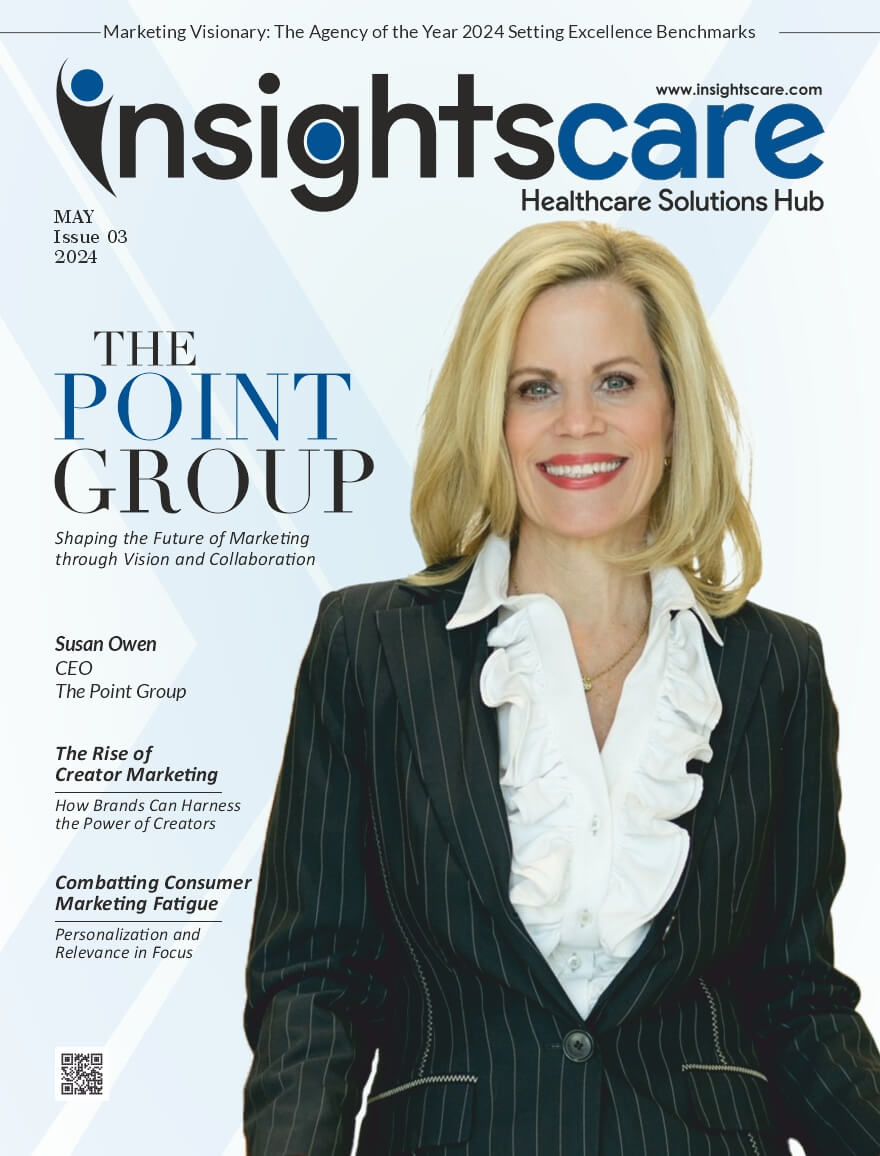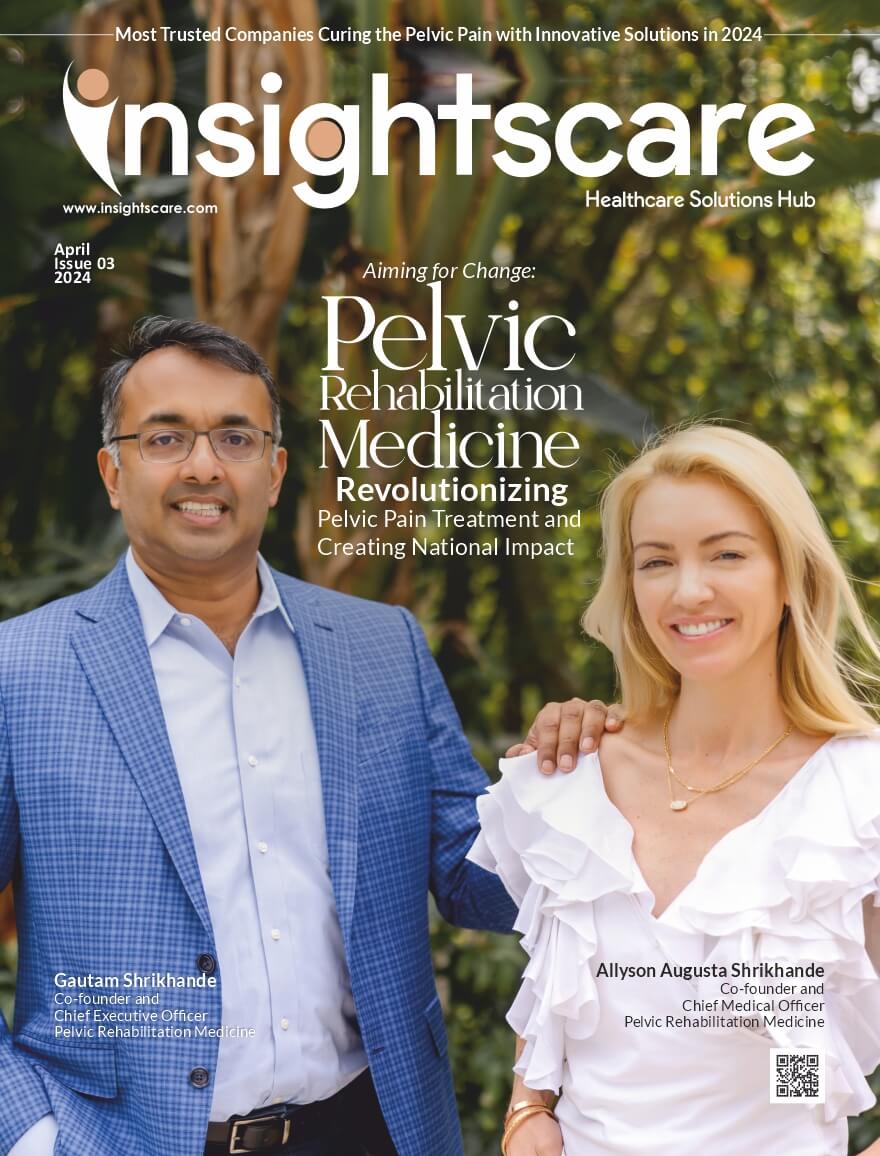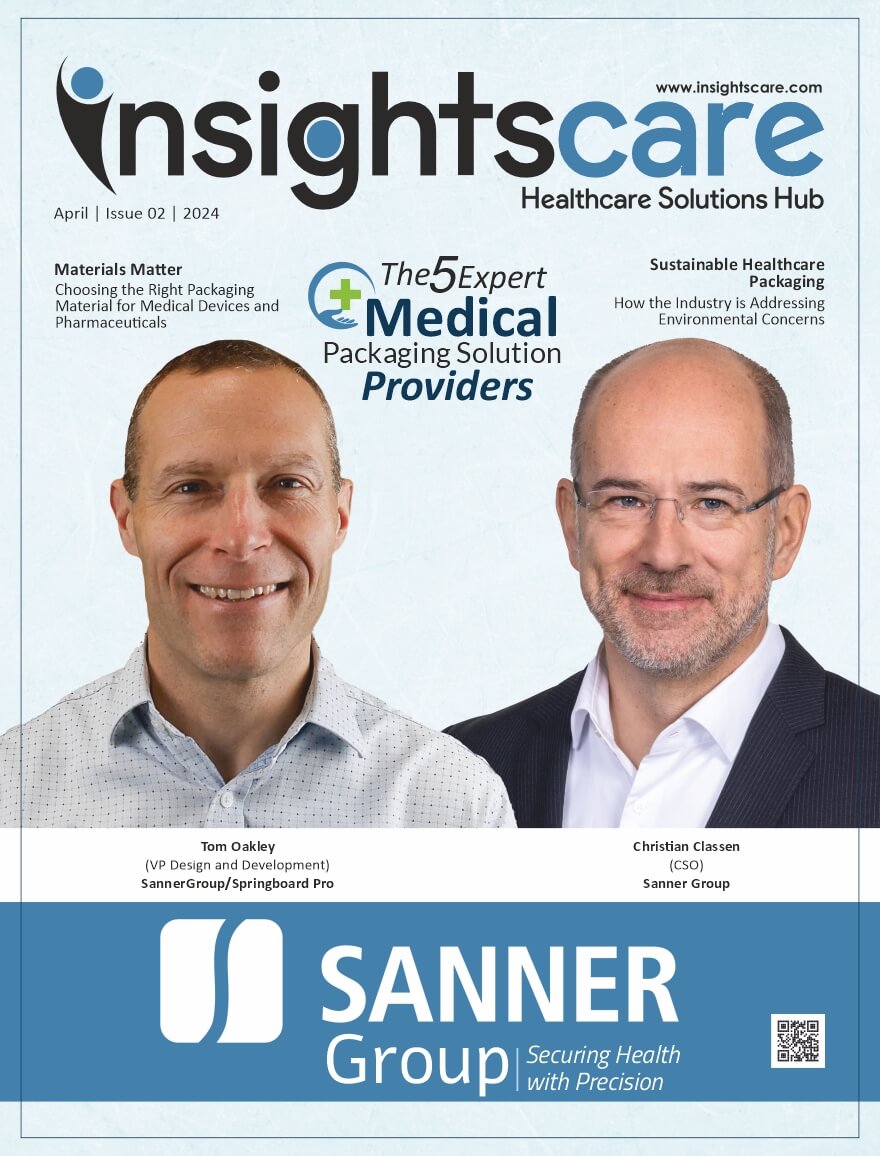Artificial intelligence and virtual care are changing the healthcare industry for the better. Just a few years ago, nobody would have thought about treating patients via telephonic calls or video chats—the COVID-19 pandemic being the source of this change.
Telehealth now plays an important role in shaping how people have access to quality healthcare. Thanks to companies like Rhinogram, patients can now receive medical attention from wherever they are. Dr. Keith Dressler, the Chairman and CEO of Rhinogram believes that this blend in technology and healthcare will only bring ease and betterment to the telehealth industry.
In the following interview, Dr. Dressler, shares valuable insights into the company’s operations, the current industry landscape, his vision for the achieving the company’s vision and mission.
Please brief our audience about your company, its mission, and the key aspects of its stronghold within the health-Tech niche.
Based in Chattanooga, Tenn., Rhinogram is a leading cloud-based, HIPAA-compliant virtual care platform – connecting patients, clinicians, and office administrators through confidential, text-based and video interactions in real time.
The virtual care platform, which supports multimedia messaging and Facebook messenger communication, seamlessly integrates with most EHR and PMS systems, synchronizing secure, encrypted patient communication into clinical workflows.
With Rhinogram, providers can better engage with their patients by streamlining administrative processes, managing pre- and post-procedure care, and reducing unnecessary appointments to realize value-based care success and deliver a quality experience that drives patient loyalty.
Tell us more about the telehealth solutions that give your company a distinctive edge to stand out from the competition?
Virtual care and remote patient engagement are essential, now more than ever. The Covid-19 pandemic prompted patients and providers to understand the benefit and necessity of virtual care platforms and use them for triage, procedure follow-ups, simple diagnoses, medication-related advice, behavioural health visits, and more.
We at Rhinogram enable providers to communicate with patients securely and safely via text-based and video interactions at any time from their mobile device to address appointment requests, clinical questions, refill requests, medical records access, and more. Through the integration of e-forms and signatures with us, providers can create and send forms via text to patients.
In turn, patients will be able to securely view, sign and submit these forms right on their phones or other mobile devices, which are then digitally stored in their patient profile. The availability of live video calls within our platform enables providers to deliver virtual visits without patients having to download an app or log into a portal.
Our virtual care platform gives providers several options for contactless care and extends care to patients with limited access, such as those living in rural communities. The platform seamlessly integrates with most EHR and PMS systems, synchronizing secure, and encrypted patient communication into clinical workflows.
It also includes a quick message-triage to appropriate team members, allowing the scheduling team to handle appointments, billing staff to field financial and insurance queries, and freeing clinical team members to address care concerns.
As a seasoned business leader what is your opinion on the effects of the pandemic on the healthcare sector, and what were the challenges that company came across?
The global pandemic accomplished something many in the healthcare sector had despaired of – it pushed providers to quickly adopt new technology like virtual care platforms, which gained a lot of traction with providers because they greatly benefit both the practice and the patient.
For providers, it was a valuable resource to help keep their doors open and remain profitable. For patients, virtual care allowed them to receive care in the most appropriate and safest manner possible.
As a result, I believe virtual care is here to stay and we will see practices beginning to hybridize the way they deliver care. As practices navigate the changing healthcare landscape and look toward the next phases of in-person and virtual healthcare, it is clear that virtual care platforms can provide exactly the type of hybridized support they need.
The reality is that many patients would be much better served with virtual wellness checks, quick text-based check-ins, and even symptom monitoring via laptop or mobile device. For example, those living in rural areas may have very limited broadband access. This restricts their ability to engage in video tele consults or even log into an EHR portal.
Not to mention, many patients with co-morbidities reside in these and other underserved communities. Virtual care platforms have an advantage here, relying on widely available cell service rather than broadband. This allows for high-risk patients to remain home during the pandemic.
In the end, I believe the pandemic sped up the learning curve when it comes to hybrid care with the realization that it is better, more profitable, and more convenient for all involved. My one piece of advice for those looking to adopt this technology would be to ensure you have adopted a HIPAA-compliant platform. Early in the pandemic, the Office for Civil Rights (OCR) at the U.S Department of Health and Human Service recognized the importance of interoperability during the pandemic and announced that it would lift penalties around telehealth use during the Covid-19 pandemic. So, some non-compliant platforms are in play.
With continuous development in technologies such as AI and ML, what is your prediction about the future of the telehealth solutions niche?
With AI and machine learning, we’re looking at a more streamlined and seamless way of communication between patient and provider. AI, for example, will allow a provider to receive data – intelligent data – from home devices with remote patient monitoring. Now, a provider can monitor their patients and triage things quickly and easily.
Integrating AI and ML technology into a virtual care platform will enable the platform to understand what normal looks like and what abnormal looks like. Clinicians will then be alerted to abnormalities, which in turn can be triaged quickly so care can be provided, and better outcomes achieved. Therefore, I believe the future of virtual care systems will integrate symptom checking and remote vital-sign collection such as blood pressure, oxygen level, and A1C level, some without the need for additional devices like a blood pressure cuff.
Medical apps can also be integrated with some platforms, allowing clinicians to more closely monitor both acute- and chronic-care patients. AI allows providers to deliver more care to more people in a higher quality way.
As for Rhinogram today, we have shifted the healthcare communication paradigm from voice answering machine dominated to a text messaging paradigm. We are looking to integrate AI and ML into our solution in 2022, which will enable incoming text messages to be read, interpreted, and then automatically routed to the right internal teams
In essence, AI will allow for smart routing with conversation intelligence. But it does require human intervention, which I don’t believe will totally disappear. What AI and ML will do is take away more tasks that can and should easily be automated as the paradigm shift continues and text messages become the dominate form of communication.
What would be your advice to the entrepreneurs and healthcare enthusiasts aspiring to venture into telehealth?
As an entrepreneur myself, I firmly believe virtual care is the new frontier for healthcare. My advice for those looking to get into the virtual care technology game would be to make sure whatever you develop can be easily integrated into all the other great solutions that are out there because you are not going to be able to conquer the entire frontier with one solution.
That is why the question keeping any virtual care entrepreneur awake at night should be ‘can my new technology easily integrate with other health IT platforms used by providers’. Knowing Rhinogram easily integrates with existing remote patient monitoring platforms or EHRs, allows us to be the engine that drives the communication for providers as we have so many features already built into our comprehensive virtual care platform. There’s no need to reinvent those wheels!
How do you envision on scaling your company’s operations and offerings in 2021?
We are continuing to look at ways to enhance our existing feature set that currently serves 36 different healthcare verticals. Our virtual care platform provides robust support to any medical specialty, from internal medicine practices managing a large patient population to specialists, looking for a way to better serve remote areas to behavioral health practices seeking to streamline frequent patient check-ins.
We are constantly learning what these verticals need as well as the enhancements to existing feature sets that they would like to have built-in to the platform. A functionality that I would say is one we would like to add is more automation, which I mentioned earlier when talking about AI workflows. At this stage, automation is critical to how we plan to scale and grow Rhinogram.
Another way we continuously look to scale our virtual care offering is to partner with those verticals that are currently using bidirectional text communication in a limited form. Instead of considering changing the entire communication paradigm, they are using bidirectional texting to add work to their staff’s plates rather than lessen administrative tasks. Their thinking is ‘if you cannot get the patient by phone or by email, then text them’.
That goes back to resisting the paradigm shift from a phone dominated communication practice to a text dominated one. Over the next five years, providers will truly come to understand how important patient-initiated texting is as a means of providing a frictionless and convenient patient experience.
We have only just begun to scratch the surface and I still think we are in the pre-early adopter phase of a text dominated virtual care platform. Educating providers is key to moving that forward, particularly with those who have experience using a virtual care platform with limited bidirectional texting who then realize they need more from their platform.
And that’s when they come searching for Rhinogram because we have more experience and knowledge gathered over the past five years that no other company has about how patient initiated communications work, what patient and provider demands are when it comes to communication, and most importantly, we know the technology that drives this need in a secure and compliant way.
About the leader:
Dr. Keith Dressler can best be described as a compassionate, philanthropic, and extremely dedicated person who unconditionally cares about his patients, his staff, and his community. With more than 35 years of experience in orthodontics and entrepreneurship, Dr. Dressler loves interacting with his patients in a positive and encouraging way and strives to give every family an exceptional patient experience every time.
With a longstanding generational background in healthcare, Dr. Dressler understood the needs of both the patient who was looking for a convenient and secure way to interact with their provider, and that of the provider who wanted to ensure they were doing so in compliance with HIPAA regulations. To help address this need, Dr. Dressler built a solution to modernize communication across all of healthcare from enterprise, all the way down to the individual practitioner.
With Rhinogram, all barriers between the patient and the provider are removed so that patients can simply communicate with their provider. For Dr. Dressler, this meant developing a virtual care solution that offers multimodality communications which supports bidirectional messages that engage patients in their preferred manner including secure text messaging, PDFs, images, video conferencing and social media access.
A serial entrepreneur, in 2000 he co-founded OrthoBanc, LLC, a payment solutions management company currently serving 4,000+ healthcare providers. In 2020, he successfully sold OrthoBanc to OrthoFi.
Exhibiting Excellence
Following are the awards that Rhinogram has won:
Co. Lab 2020 High Growth Business of the Year
Co. Lab 2020 Startup of the Year
Becker’s Healthcare 102 Women in Health IT to Know | 2019
Becker’s Hospital Review Telehealth companies to know | 2019 and Telehealth companies to know | 2020
CityScope Magazine’s 8 Companies to Watch in 2021















